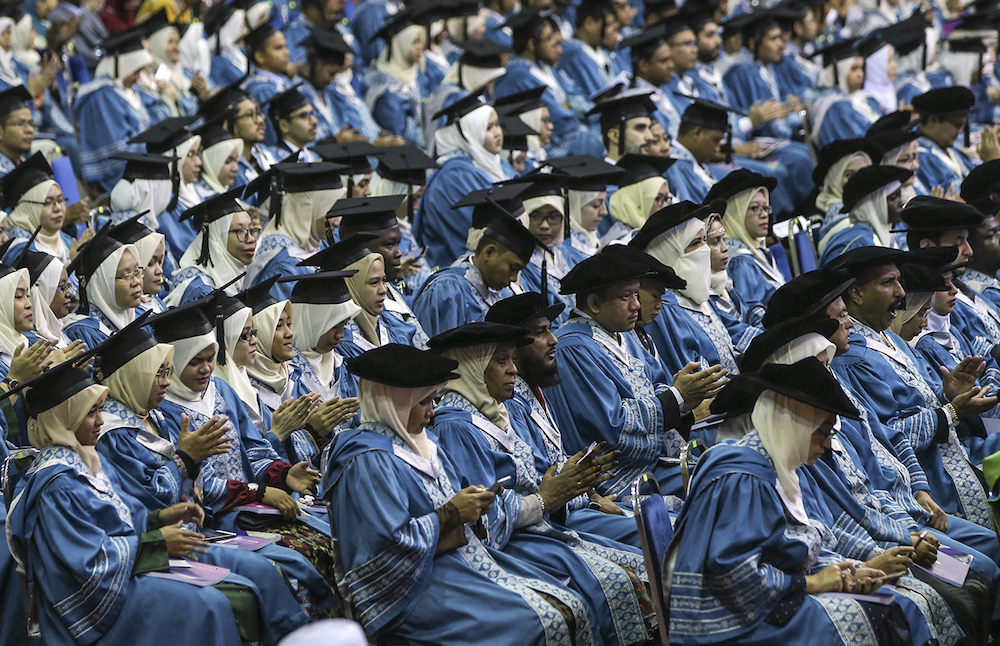GEORGE TOWN, Aug 8 — Several economists said today having straight-A students does not mean they will be equipped with the right set of skills to make them employable in future.
Bank Negara Malaysia’s Economics Department Director Mohd Fraziali Ismail said Malaysia can produce a lot of straight-A students but ultimately, not all of them are employable.
He said the country also has a lot of university graduates but to make them employable, they need to be trained for the industry.
“There is a need to up-skill our graduates to be ready for the industry,” he said during a forum on the US-China Trade War organised by the Penang Institute here.
Malaysian Industrial Development Finance Berhad’s (MIDF) Head of Investment Mohd Redza Abdul Rahman agreed that the country seemed to have a record number of straight-A students but this does not mean they meet with international standards.
“Less than six percent of our school leavers are accepted into Ivy League universities overseas and in comparison, China and Singaporean got more acceptance into these universities,” he said.
Fraziali said there is a need for a long-term look at the education system and training up of local graduates in order to produce employable graduates.
“We have a lot of blueprints and masterplans published over the years, including an Education Blueprint.
“The Education Blueprint should take about 10 years to implement,” he said.
He said an education blueprint takes about 10 years to implement so it was up to the policy makers to be more focused in reaching the objectives in the blueprints and established a KPI in reaching the objectives.
“We need to seriously look at how far we have come in terms of successfully implementing the blueprint,” he said.
According to Malaysia Institute of Economic Research Senior Research Fellow Shankaran Nambiar there is a need for more value-added services to draw in high-value investors.
“What we need is to have technical sophistication associated with the electrical and electronics sector but unfortunately, we are not at the higher end or value-added end of the E&E now,” he said.
He said there is a need for Malaysia to look at higher productivity and engage in high-end productivity with skilled workers.
Meanwhile, on the US-China trade war, political science professor Khong Yuen Foong said the trade war could lead to a “split Asean” when member countries started to take sides.
The vice dean of the Lee Kuan Yew School of Public Policy in National University of Singapore said Malaysia will have a tough time picking a side as currently, it has decided to stay neutral without picking either the US or China.
“Malaysia is very good at what we call hedging, growing economically with China, but at the same time, they also welcome US presence here,” he said.
He said Malaysia knows that China can directly impact its economy while it also can’t deny the fact that it needed US for security.
He said countries like Laos and Cambodia would probably choose China over US since their economies are dominated by China while Malaysia, Indonesia and Singapore would remain on the fence to benefit from both countries.
“Over time, they will find it difficult not to choose a side so you will see a split Asean and this will not be healthy as maintaining Asean’s solidarity will be difficult after this,” he said.
As for talks of China’s rising power economically, poised to take over the US, Khong believed that it won’t be within this five to 10 years’ period.
“Although many people are saying that China will take over US as the economic super power in the next 10 years, I think it will be so soon,” he said.
He said US is the established power and China is a rising power so it will take China about 30 to 40 years before rising to take over US economically.




















